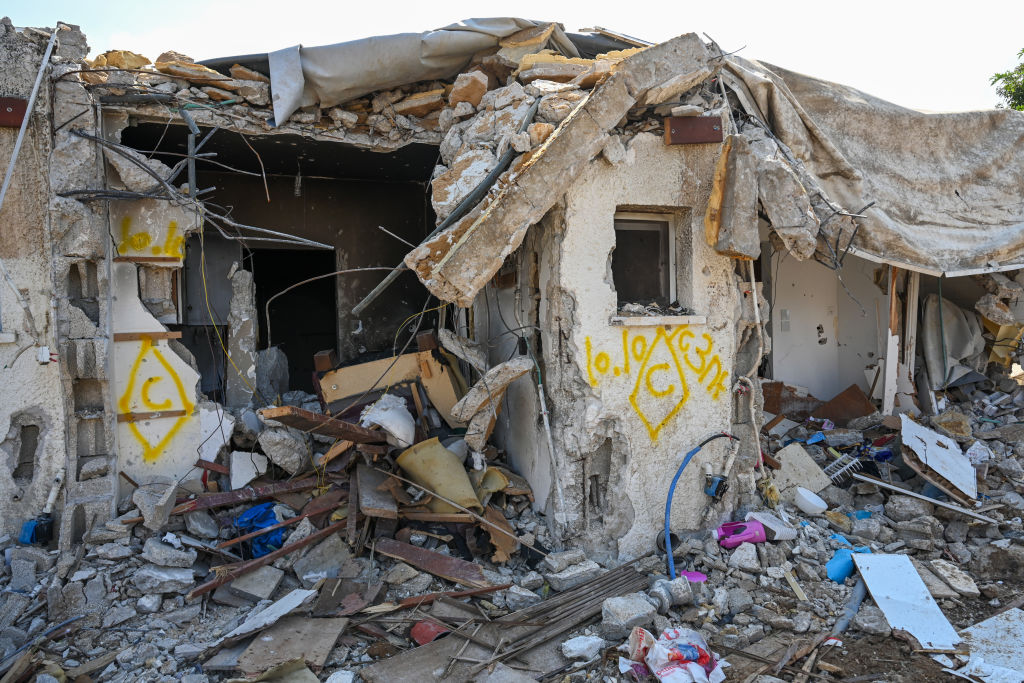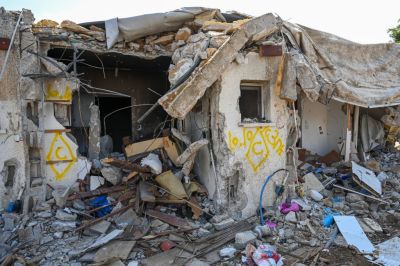A recent post by ZirafaMedia, a U.S.-based pro-Palestinian outlet that has a presence on Instagram, TikTok, and YouTube, cites reporting by the Israeli newspaper Haaretz to claim that the Israel Defense Forces “intentionally killed their own citizens on Oct. 7” and that the “Israeli army was responsible for the largest number of Israeli civilian casualties on that day.”
Haaretz did report that the IDF launched attacks within three military outposts that day, but ZirafaMedia takes Haaretz’s reporting out of context to make exaggerated claims, and there is no basis for the assertion that the IDF “was responsible for the largest number of Israeli civilian casualties” on October 7, 2023, when the Palestinian militant group Hamas launched a surprise attack on Israel.
Haaretz obtained documents and soldier testimony showing that the “Hannibal procedure,” also known as the Hannibal directive, was employed on October 7 in at least three locations.
The Hannibal directive is an Israeli military protocol initially established in 1986 in response to Israeli soldiers being abducted by enemy forces—such as Hezbollah and other militant groups in the Middle East. The goal of the directive is to prevent the capture of Israeli soldiers, even at the risk of a soldier’s death.
The directive gained notoriety because it allowed for extreme measures to thwart soldiers being captured by enemy forces, including the use of heavy firepower and putting soldiers’ lives at great risk. In 2016, Gadi Eizenkot—then the chief of staff of the IDF—ordered the formal revocation of the policy, in favor of new protocols that aim to greater balance the imperative of preventing future kidnappings with the need to protect the lives of civilians and soldiers.
The Israeli government has not confirmed whether the policy was implemented during the Hamas-led massacre of Israeli civilians and soldiers on October 7.
Haaretz reports in the piece that a senior defense official within the Israeli government chose to conduct attacks inside outposts in response to the IDF being “overwhelmed” by the sheer number of Hamas fighters. Furthermore, the media outlet reported that by the end of the night:
One case in which it is known that civilians were hit, a case that received wide coverage, took place in the house of Pessi Cohen at Kibbutz Be'eri. 14 hostages were held in the house as the IDF attacked it, with 13 of them killed. In the coming weeks, the IDF is expected to publish the results of its investigation of the incident, which will answer the question of whether Brig. Gen. Barak Hiram, the commander of Division 99 who was in charge of operations in Be'eri on October 7, was employing the Hannibal procedure.
ZafraMedia post’s claim that Israel “intentionally killed its own citizens” is exaggerated. The Haaretz article details the timeline of the orders reportedly given to soldiers, and notes that an order given at 10:32 a.m. on October 7 to fire mortars toward Gaza was criticized “since at that time, the IDF did not have a complete picture of all the forces in the area, including soldiers and civilians. It also notes that a different order was given at 2 p.m. in which “forces were instructed not to exit border communities toward the west, in the direction of the border, with an emphasis on not chasing terrorists.”
According to Barron’s, Hamas’ October 7 attack on Israel resulted in the death of more than 1,160 people, mainly civilians. The death toll at the Nova music festival site alone is reported to be 364. While it is true there have been cases of fatalities caused by friendly fire from the IDF, nearly all of the Israelis who died that day were killed by Hamas.
If you have a claim you would like to see us fact check, please send us an email at factcheck@thedispatch.com. If you would like to suggest a correction to this piece or any other Dispatch article, please email corrections@thedispatch.com.





Please note that we at The Dispatch hold ourselves, our work, and our commenters to a higher standard than other places on the internet. We welcome comments that foster genuine debate or discussion—including comments critical of us or our work—but responses that include ad hominem attacks on fellow Dispatch members or are intended to stoke fear and anger may be moderated.
With your membership, you only have the ability to comment on The Morning Dispatch articles. Consider upgrading to join the conversation everywhere.